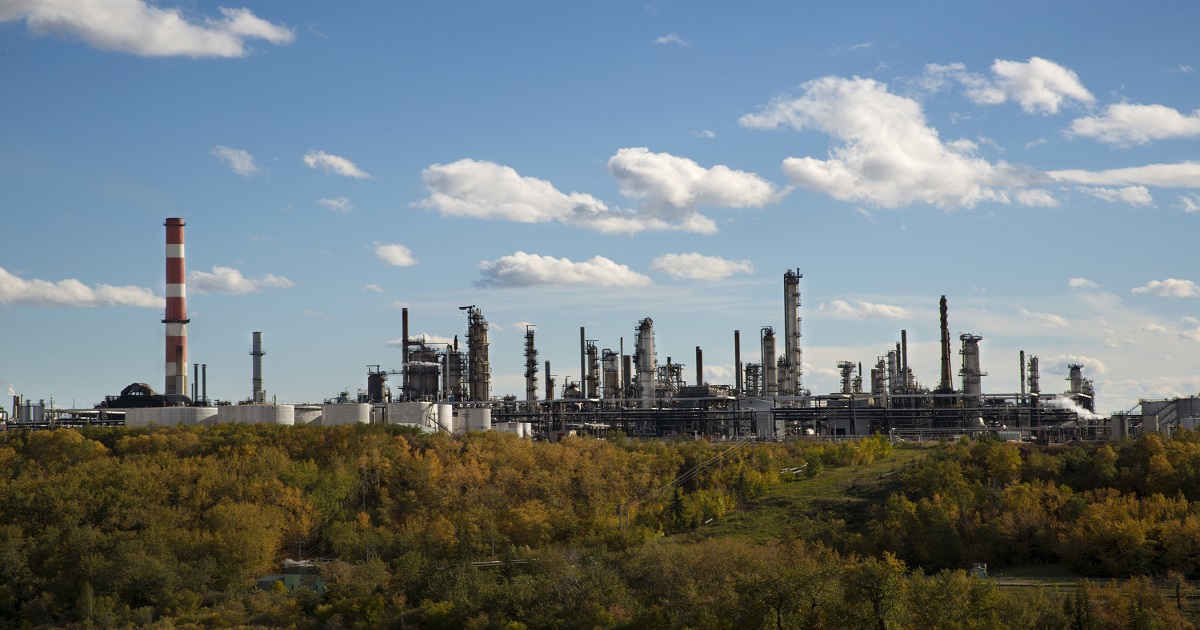ExxonMobil Affiliate to Produce Renewable Diesel to Help Reduce Transportation Emissions in Canada
ExxonMobil | August 30, 2021

ExxonMobil today announced its majority-owned affiliate, Imperial Oil Ltd., is moving forward with plans to produce renewable diesel at a new complex at its Strathcona refinery in Edmonton, Canada. When construction is complete, the refinery is expected to produce approximately 20,000 barrels per day of renewable diesel, which could reduce emissions in the Canadian transportation sector by about 3 million metric tons per year. The complex will utilize locally grown plant-based feedstock and hydrogen with carbon capture and storage (CCS) as part of the manufacturing process.
“Canada’s proposed low-carbon fuel policies incentivize the development of lower-emission fuels that can make meaningful contributions to the hard-to-decarbonize sectors of the economy, including transportation,” said Ian Carr, president of ExxonMobil Fuels & Lubricants Company. “The Strathcona project is an example of how well-designed policies allow us to leverage our existing global facilities for capital efficiency, utilize our proprietary catalyst technology, and bring our decades of processing experience to develop low-emission fuels.”
The renewable diesel production process will utilize blue hydrogen, which is produced from natural gas with carbon capture and storage. Production of blue hydrogen has been shown to have substantially reduced greenhouse gas emissions compared to conventionally produced hydrogen. Approximately 500,000 metric tons of CO2 are expected to be captured each year utilizing CCS. The blue hydrogen and biofeedstock will be combined with a proprietary catalyst to produce premium low-carbon diesel fuel.
“Canada’s proposed low-carbon fuel policies incentivize the development of lower-emission fuels that can make meaningful contributions to the hard-to-decarbonize sectors of the economy, including transportation,” said Ian Carr, president of ExxonMobil Fuels & Lubricants Company. “The Strathcona project is an example of how well-designed policies allow us to leverage our existing global facilities for capital efficiency, utilize our proprietary catalyst technology, and bring our decades of processing experience to develop low-emission fuels.”
The renewable diesel production process will utilize blue hydrogen, which is produced from natural gas with carbon capture and storage. Production of blue hydrogen has been shown to have substantially reduced greenhouse gas emissions compared to conventionally produced hydrogen. Approximately 500,000 metric tons of CO2 are expected to be captured each year utilizing CCS. The blue hydrogen and biofeedstock will be combined with a proprietary catalyst to produce premium low-carbon diesel fuel.
The Strathcona renewable diesel project is part of ExxonMobil’s plans to provide more than 40,000 barrels per day of low-emissions fuels by 2025. In the United States, the company has agreed to purchase up to 5 million barrels of renewable diesel annually from Global Clean Energy to supply markets in California. Chemically similar to petroleum-based diesel, renewable diesel can be readily blended for use in engines on the market today.
About ExxonMobil
ExxonMobil, one of the largest publicly traded international energy companies, uses technology and innovation to help meet the world’s growing energy needs. ExxonMobil holds an industry-leading inventory of resources, is one of the largest refiners and marketers of petroleum products, and its chemical company is one of the largest in the world.